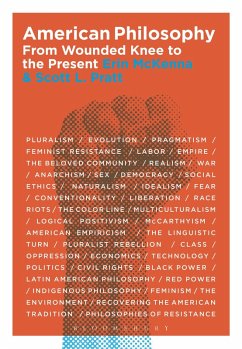American Philosophy offers the first historically framed introduction to the tradition of American philosophy and its contemporary engagement with the world.
Born out of the social and political turmoil of the Civil War, American philosophy was a means of dealing with conflict and change. In the turbulence of the 21st century, this remains as relevant as ever. Placing the work of present-day American philosophers in the context of a history of resistance, through a philosophical tradition marked by a commitment to pluralism, fallibilism and liberation, this book tells the story of a philosophy shaped by major events that call for reflection and illustrates the ways in which philosophy is relevant to lived experience.
This book presents a survey of the historical development of American philosophy, as well as coverage of key contemporary issues in America including race theory, feminism, indigenous peoples, and environmentalism and is the ideal introduction to the work of the major American thinkers, past and present, and the sheer breadth of their ideas and influence.
Born out of the social and political turmoil of the Civil War, American philosophy was a means of dealing with conflict and change. In the turbulence of the 21st century, this remains as relevant as ever. Placing the work of present-day American philosophers in the context of a history of resistance, through a philosophical tradition marked by a commitment to pluralism, fallibilism and liberation, this book tells the story of a philosophy shaped by major events that call for reflection and illustrates the ways in which philosophy is relevant to lived experience.
This book presents a survey of the historical development of American philosophy, as well as coverage of key contemporary issues in America including race theory, feminism, indigenous peoples, and environmentalism and is the ideal introduction to the work of the major American thinkers, past and present, and the sheer breadth of their ideas and influence.









